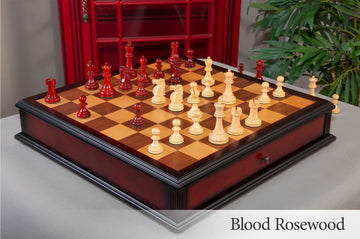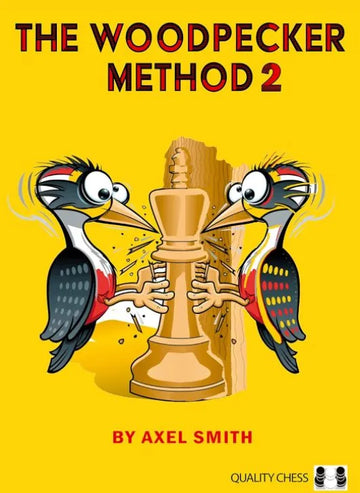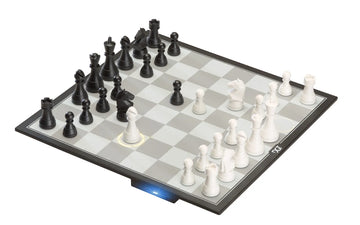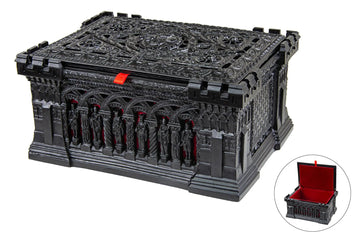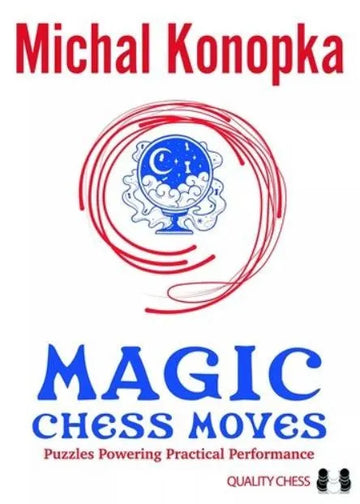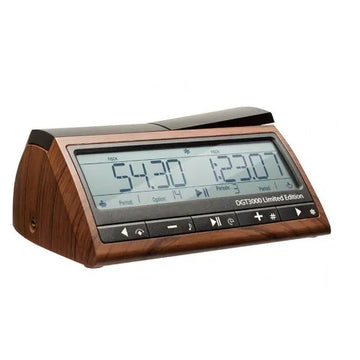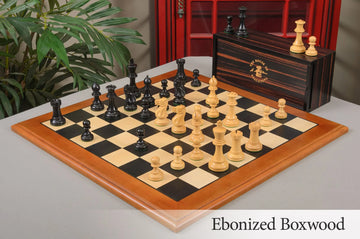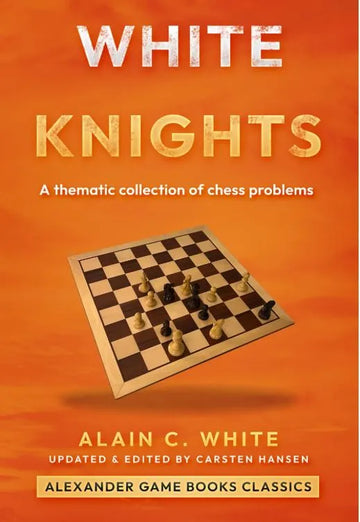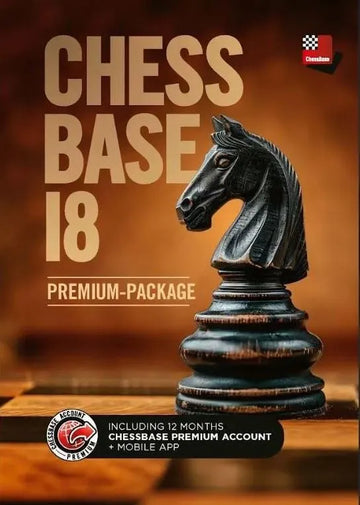10 Must Have Beginner Chess Books
As you begin your chess-playing career, there are hundreds of book lists out there that you will see. But which ones are best for you as a beginner? Some chess books are written by grandmasters and expected to be read by grandmasters, but most of us need books geared more to our level. If your level is complete beginner, then here are 10 must have beginner chess books for you to add to your bookshelves. Just make sure you actually read them!

First, a Classic
The number one book on my list is a classic that I think is a good addition to your collection, but it is not going to fully build up your chess. Start with the classic, but then add on more modern additions from the world of chess beginner books.
1. Bobby Fischer Teaches Chess
It is hard not to recommend one of the most-read chess books ever; Bobby Fischer Teaches Chess will wind up on many chess book lists. While this certainly shouldn’t be the only chess book you read, it is still an excellent beginner quick read. It was first published in 1966 and has had over one million copies sold. There is probably one sitting around your local chess club! Grab your own copy and learn from the great world champion.

There are 19 different real-game examples played between 1957 and 1965. This is a book meant for beginners, and it is very accessible. Real grandmaster games and positions used to teach chess. This book, interestingly enough, does not require any previous knowledge of algebraic notation because the whole book just uses diagrams with arrows and descriptions. The downside to this is that you then do not learn how to write and read chess notation.
Chess Workbooks That Will Help Anyone
Workbooks are excellent resources for learning. Writing your answers to basic tactics, checkmating patterns, and checkmate themes in a workbook is a perfect starting point for your chess journey. The physical action of writing the moves will also help prepare you for your next chess tournament, where you will need to notate your moves. Learning and practicing this process through these beginner chess books and workbooks is a good first step.
2. Everyone's First Chess Workbook
There are 738 chess exercises with room to practice your chess notation and write down the moves in this excellent step-by-step learning chess workbook. Author Peter Giannatos has many years of experience crafting great positions for teaching chess basics. I still often use this book as a chess coach when I need good positions to teach basic tactics. Even if you feel you are beyond this book, I would recommend giving it a shot to build up the foundation for your chess. Most decent chess players, if they want to be great, need to learn and improve upon their basics.

3. Chess Tactics for Students
I think Chess Tactics for Students would be a great extension beyond Everyone’s First Chess Workbook. If you finish that one, I recommend doing more workbook work with Chess Tactics for Students. Even if you are not a student in age, a student of the game can significantly improve by practicing with puzzles like these. There are 253 pages with 434 selected problems of increasing difficulty. Doing more puzzles is a great way to improve at chess. Keep on going! Doing these patterns over and over will help you find these tactics in your game. Something about doing these in a physical book, where you write down your answers, is a good practice to improve your chess.

Modern Chess Books to Learn Chess Basics
Bobby Fischer’s book is a classic, but there are some newer, more modern ways to learn chess. Here are some books to add to your collection.
4. Learn to Play Chess Like a Boss
Learn to Play Chess Like a Boss was one of the first chess books that I read as a new chess player. I picked up chess as an adult, and this was a great way for me to fill in the gaps between what I had taught myself. This book mixes chess basics, tactics, and even the context of chess history and the future! Patrick Wolff lays out exactly what you need to learn to improve at the game, from knowing nothing to winning chess games like a boss. Just like with Everyone's First Chess Workbook, even if you feel like you already know the basics, this chess book will do a great job of raising your floor as a chess player and building up the foundation of your chess.

5. Across the Battlefield: A Pawn's Journey
This is a fun way for kids to learn the game of chess. Using fun storytelling methods to teach chess, author Jonathan Ferry uses the pawn as a character. Life is tough for Prunella, the pawn, because of all of the limitations a pawn has. Use this daring adventure across the chessboard to teach kids the game. I love stories that can help us learn, and this book for beginners does that exceptionally. Chess teachers and parents should think of using this beginner chess book for kids who like reading and want to learn chess.

Beginner Chess Books for Openings and Chess Endgames
Once you have a good grasp of the basics of chess, it can be a good time to learn good opening and endgame principles. Every game has an opening. Most games have some sort of endgame. Unless you don’t get checkmated, that is. Learning these opening and endgame principles can give a beginner player much more confidence in a chess game. Don’t worry about learning specific openings or engame theory, but learn good principles from these books, and you will enjoy chess even more.
6. Winning Chess Openings
Yasser Seirawan’s Winning Chess Openings is a great way to advance your adult chess journey by becoming more confident in the chess opening. I have found that it is very difficult for some students to want to play chess at all if they do not feel any confidence entering a chess game without any confidence in their opening. Simply knowing good opening ideas will help you survive the opening phase of the game, but also help you choose what attack and defenses you should use. You will gain a solid and confident understanding of good opening principles that you can add to all of your games. And the added benefit is you get to read Yasser’s amazing writing voice.

7. Winning Chess Endings
I hope you liked number five on this list because six and seven are more on the way from Yasser. I think the entire “Winning Chess” series from Seirawan is an excellent resource for the new chess player. Once you feel confident in the opening, the next step is to learn good endgame principles. Learn endgames through Yasser’s great entertaining style in Winning Chess Endings. You will learn how to use proven endgame principles to win games. Once you have a better grasp of the endgame in chess, you will feel more confident to start playing games and simplifying into those winning positions. Adding basic endgame understanding to the foundation of your good chess fundamentals is like having a cheat code for winning chess games.

Beginner Chess Books That Will Build on Your Good Foundation
8. Winning Chess Strategies
This might be my favorite chess book on this list. Is it a little bit beyond some of the others? Yes. But if you have already read the others on this list, then you are more than ready to dive into another Yasser classic, Winning Chess Strategies. This book is exactly what it says it is. If you have put in the work to learn all of the basic tactics, patterns, and everything else that books like Everyone's First Chess Workbook and Learn to Play Chess Like a Boss can teach you, you are ready to tackle strategy.

Strategy is the step above basic tactics that can help you win chess games. Once your foundation is solid, good strategy is the house that you build on that foundation. Where should your pieces be? How should you be playing middle games? All questions that Yasser helps tackle in this excellent step forward in your chess.
9. Chess - 5334 Problems, Combinations, and Games
Okay, if you have finished the problems in Everyone's First Chess Workbook and Chess Tactics for Students, then here is the last book of puzzles you will need. There are plenty of other great tactic books that you can still add to your collection, but the over 5000 unique instructional situations will be more than enough to keep you busy! Don’t worry if you get to problems that feel too difficult. Now, those become calculation exercises. Sure, you were able to solve the workbook problems in seconds, but just because these could take more time does not mean they are beyond you. Take one or two in a session and practice visualizing different lines. Take your time, this is not a book to rush through because of the number of puzzles.

10. The Mammoth Book of the World's Greatest Chess Games
Similar to the 5334 problems, The Mammoth Book of the World's Greatest Chess Games is a massive resource that will last you a lifetime. The 125 carefully curated games are what a group of British experts decided were the best games of all time. Not only are the games here, but they all have nice bits of context and analysis. Once your foundation is built by learning the basics and tactics, and strategy has started building up your home, reviewing master games will put the roof on that home.

What Beginner Chess Books Should I Buy?
These are ten books that I recommend for a beginner, but not everyone can afford to buy ten books at once. If you are a complete beginner, I would recommend Everyone's First Chess Workbook and Learn to Play Chess Like a Boss as two books to introduce you to the game and build a strong foundation.

